Thousands of Western foreign fighters have traveled to the Middle East in recent years to join the fighting that has engulfed the region. They have overwhelmingly participated on the side of jihadi organizations like the Islamic State (ISIS) or the Jabhat Fateh al-Sham (formerly the Nusra Front).
However, a smaller and often unnoticed segment of these volunteers has embedded with groups that resist the jihadis, such as Kurdish, Assyrian, and Yazidi militias. These fighters vary in their motivations for joining the fight: Some are driven by moral outrage and seek to prevent the atrocities minority groups have suffered at the hands of the jihadis, while others are motivated by co-religionist solidarity. Some seek a sense of adventure and the adrenaline highs of military tourism, while others wish to escape problems at home, finding in the fight a form of self-medicating for post-traumatic stress disorder and other problems.
A New Phenomenon of the 21st Century Battlefield
“Combat charities”—entities that seek to provide non-profit military and political assistance to weaker armed groups or minorities resisting the military onslaught of others (like ISIS)—are one mechanism for foreign anti-ISIS volunteers to join the fight. “Combat charities” are a new rising phenomenon of the 21st century battlefield and political dispensation. They can significantly affect both local orders and international politics.
Based on my fieldwork with combat charities in Iraq during 2015 and 2016, this piece and my detailed paper on the topic—“Combat charities, or when humanitarians go to war,” written for the Brookings project “Reconstituting Local Orders”—analyzes the military and political effects of two different combat charities: Sons of Liberty International (SOLI) and Humanitarian Defense Abroad (HDA).
The Western Pathbreakers
SOLI is the oldest and most established combat charity in the world. Founded and led by American citizen Matthew VanDyke, it operates in Iraq, and is building abilities to operate in Syria and North Africa. Since its creation in 2014, SOLI has helped form, train, and to certain extent equip the two largest Assyrian militias in northern Iraq fighting against ISIS. SOLI even helped one of the Assyrian militias get recognized as an official self-defense force by the central Iraqi government in Baghdad. Even though few analysts and observers noticed SOLI’s impact, it thus significantly boosted the ability of the Assyrian community in Iraq to defend itself, gain recognition in Baghdad, and be taken more seriously by Erbil.
Therefore, in addition to altering the battlefield capacities of the Assyrian militias, SOLI has also had rather profound political effects on the ground. But its presence among the militias has had almost no cultural effects, mostly because its local Iraqi interlocutors were familiar with Western culture before the arrival of SOLI.
HDA was established in 2015. While it may not be the first de facto combat charity, it holds primacy as the first combat charity legally acknowledged as such by a sovereign country—the United States. In contrast to SOLI, it is less oriented toward direct combat training of local groups. Rather, it focuses on facilitating the embedding of specialized volunteers from abroad into Kurdish peshmerga units. While Kurdish militias are able to obtain equipment at relatively low prices and with relative ease, intelligence gathering and communications capabilities are often more elusive. HDA focuses on boosting these capabilities of local anti-ISIS militia groups as well as providing specialized technologies.
Both SOLI and HDA also teach the commanders and leaders of their partner groups how to communicate with Western media and Western governments.
…And Their Jihadi Twin
Founded in May 2016, Malhama Tactical is the first sunni jihadi private military company. As Rao Komar, Christian Borys, and Eric Woods reported in Foreign Policy magazine in February, during its short existence Malhama Tactical has provided training and battlefield consulting for Jabhat Fateh al-Sham (formerly known as the Nusra Front, affiliated with al-Qaida) and the Turkistan Islamic Party, an Uighur extremist group from China’s restive Xinjiang province. Its founder, known by the nickname “Abu Rofiq,” stated that they are willing to expand anywhere where Sunni Muslims are oppressed, specifically naming Myanmar, China, and Russia.
According to the Foreign Policy report, Abu Rofiq insists that although his organization charges for training, he isn’t a mercenary because his group’s motivation transcends money. “Our goal is different; we are fighting for an idea,” he said—namely, jihad against Assad. As Sean McFate, an associate professor at the National Defense University stated, the outfit’s mix of jihadi ideology with the privatization of war is a unique and troubling trend.
Malhama’s YouTube and Facebook pages support what he says. As Komar, Borys, and Woods write, interested parties can find:
“Online guides for jihadis, covering improvised grenade construction, weapon cleaning, room clearing, and urban combat, among other skills. The group’s instructors organize online training sessions—on subjects including battlefield first aid; the use of weapons, such as RPG-7s; hand signal systems for urban combat; and introductions on how to conduct ambushes—when in-person assistance and consulting is not possible.”
How long will it be before a jihadi group comes along—in spirit and determination similar to Malhama Tactical—and will not take money, but will fundraise and pick the recipient of its help itself? That would essentially copy the model of combat charity that is developing in the West.
Ignore at Your Own Peril
Even though combat charities, at their current numbers and scale, do not have the capacity to alter the outcomes of large-scale conflicts, they can and already do have significant effects on local orders. They may significantly influence outcomes of smaller conflicts and the resulting political arrangements.
Their emergence also has significant legal and ethical implications. Local circumstances and international policies will determine whether and under what circumstances combat charities improve humanitarian outcomes or spiral out of control, generating new sets of humanitarian challenges and pernicious conflict dynamics. Policymakers should no longer ignore the combat charity phenomenon. They should acknowledge the existence of these groups, analyze their impact, and devise policies for how to engage with them. They could find inspiration in the regulations that emerged both during the debates on outsourcing (national) security at the end on 20th century and the boom of U.S.-based private military industry in the beginning of 21st century. At the same time, they should keep in mind that they are not dealing with corporate entities—rather, with idealistic, mostly volunteer-based organizations that operate like NGOs.
The Brookings Institution is committed to quality, independence, and impact.
We are supported by a diverse array of funders. In line with our values and policies, each Brookings publication represents the sole views of its author(s).


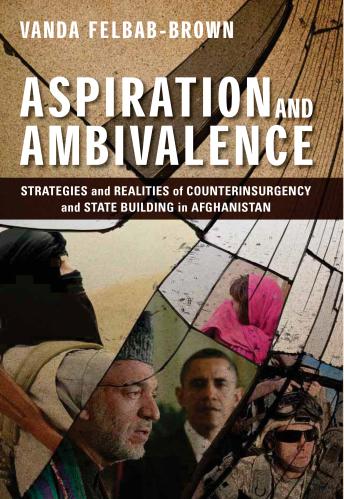
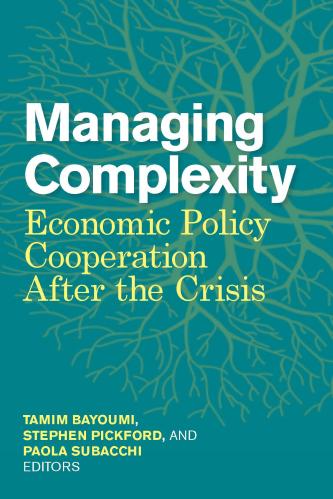
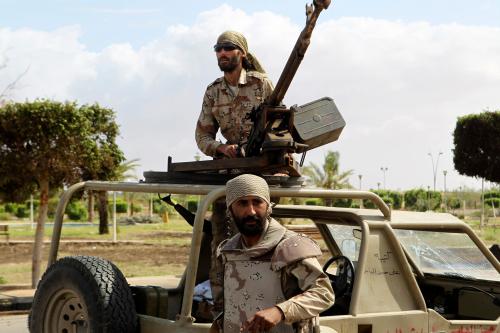
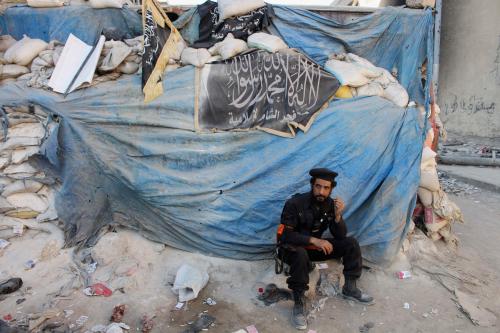
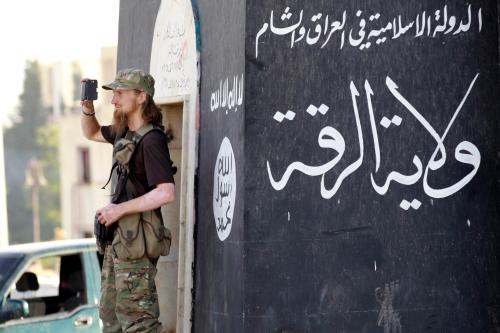



Commentary
“Combat charities” in the West and their jihadi twin
April 11, 2017